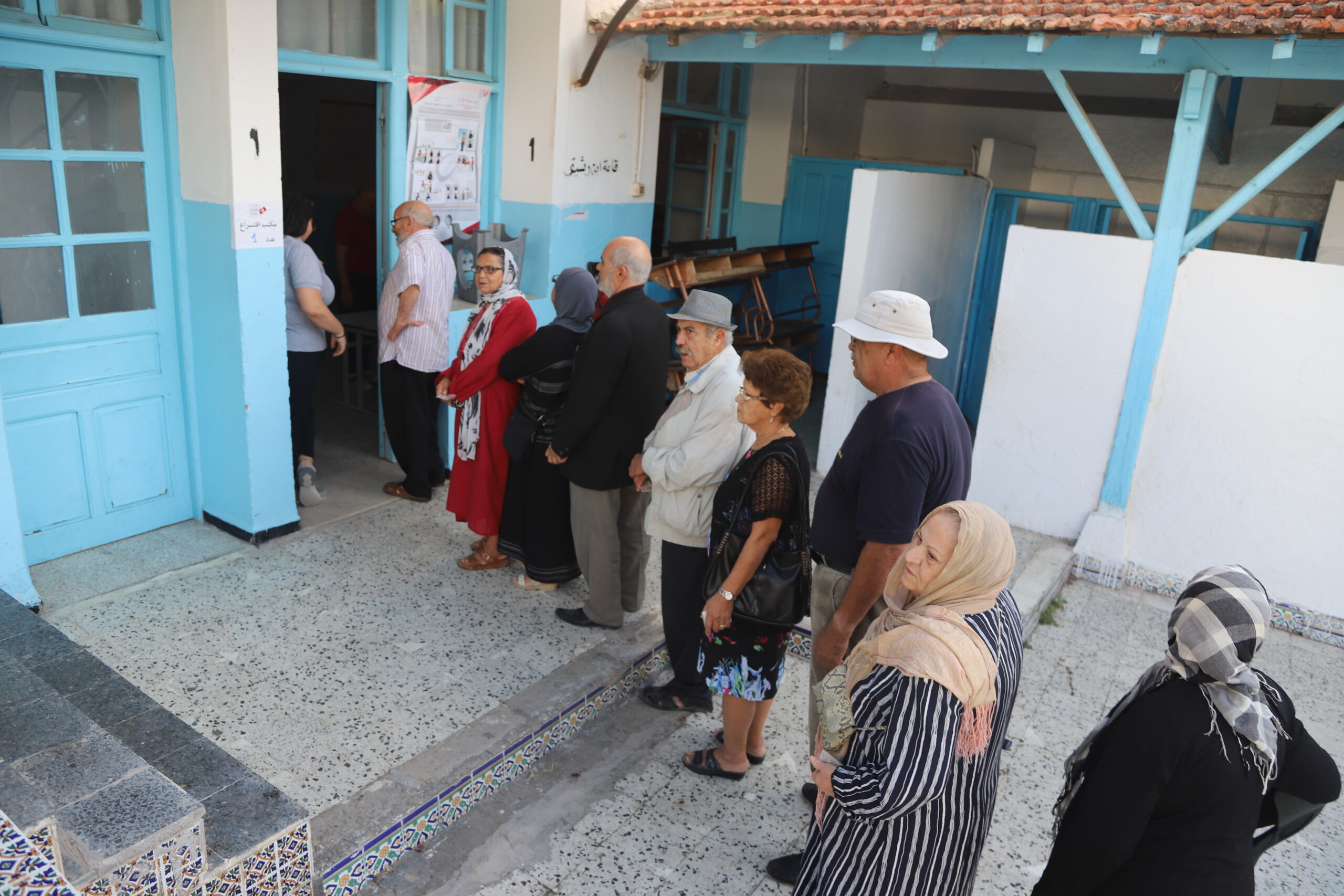On Wednesday, August 7, Tunisia’s President Kais Saied replaced the country’s prime minister, Ahmed Hachani, with Social Affairs Minister Kamel Maddouri. Hachani’s relief of duty stems from the country’s struggle with its recurring water and electricity outages. A few hours before his dismissal, Hachani released a video message relaying that the government has made progress on many of Tunisia’s issues despite its global challenges over food and energy security.
The shakeup comes only months before the country’s presidential election on October 6. With election day growing closer, a recent court decision banned four opposition candidates from running, including a two-year prison sentence of potential candidate Abir Moussi, who has been a staunch critic of Saied.
Regional sources report on the recent developments:
Arab News explained that Hachani was dismissed as prime minister “exactly a year after Saied appointed him to replace Najla Bouden as prime minister,” as a response to discontent across the populace over the frequency of water and electricity outages throughout the country. The Tunisian government says their country is “suffering from a continuous drought that has led to a quota system in water distribution.”
Asharq Al-Awsat reported that President Saied “sees the water cuts as a conspiracy ahead of the presidential election and says that the dams are full.” However, the Agriculture Ministry reports that “the dam level is extremely critical and has reached 25 percent.”
Ahram Online quoted Saied’s social media announcement of the appointment of Kamel Maddouri, saying that he has “decided to assign him to head the government, succeeding Mr. Ahmed Hachani.” Maddouri had only held his ministerial position since May of this year and “will be the sixth prime minister to serve as head of government under Saied,” noted The New Arab.
Tunisia has experienced a tumultuous year due to “growing social discontent and economic tensions, stemming from a galloping inflation, high unemployment and persistent structural challenges,” and the highly anticipated election in the fall.
The following Saturday, August 10, the Independent High Authority for Elections in Tunisia (ISIE) announced three accepted presidential candidates: Saied; Zouhair Maghzaoui, the Secretary-General of the People’s Movement; and Al-Ayachi Zammal, the former deputy and head of the Azmoun Movement. Al Mayadeen reported that only three of 17 candidate applications were accepted, with the other 14 rejected because of a “lack of sufficient endorsement signatures or failure to meet the regional distribution requirement.”
Leading up to the ISIE’s announcement, four potential candidates were sentenced by the Tunisian court to eight months in prison. Abdel Latif Mekki, a politician, activist Nizar Chaari, Judge Mourad Massoudi, and Adel Dou were all charged and “banned from running for office on charges of vote buying,” according to Turkiye Today. Critics of the ruling claimed “this decision aims to eliminate serious competitors to President Kais Saied.”
Key opposition figure and potential candidate Abir Mousi was also sentenced to two years in prison on Monday night. Al Arabiya detailed that Mousii, the head of the Free Destourian party and a “staunch critic” of Saied, “had submitted her candidacy on Saturday via her lawyers, two days before her sentence.” Following complaints from the ISIE against Mousi for her critiques of them, she was “sentenced under Decree 54, a law enacted by Saied in 2022 to combat ‘false news.’”

